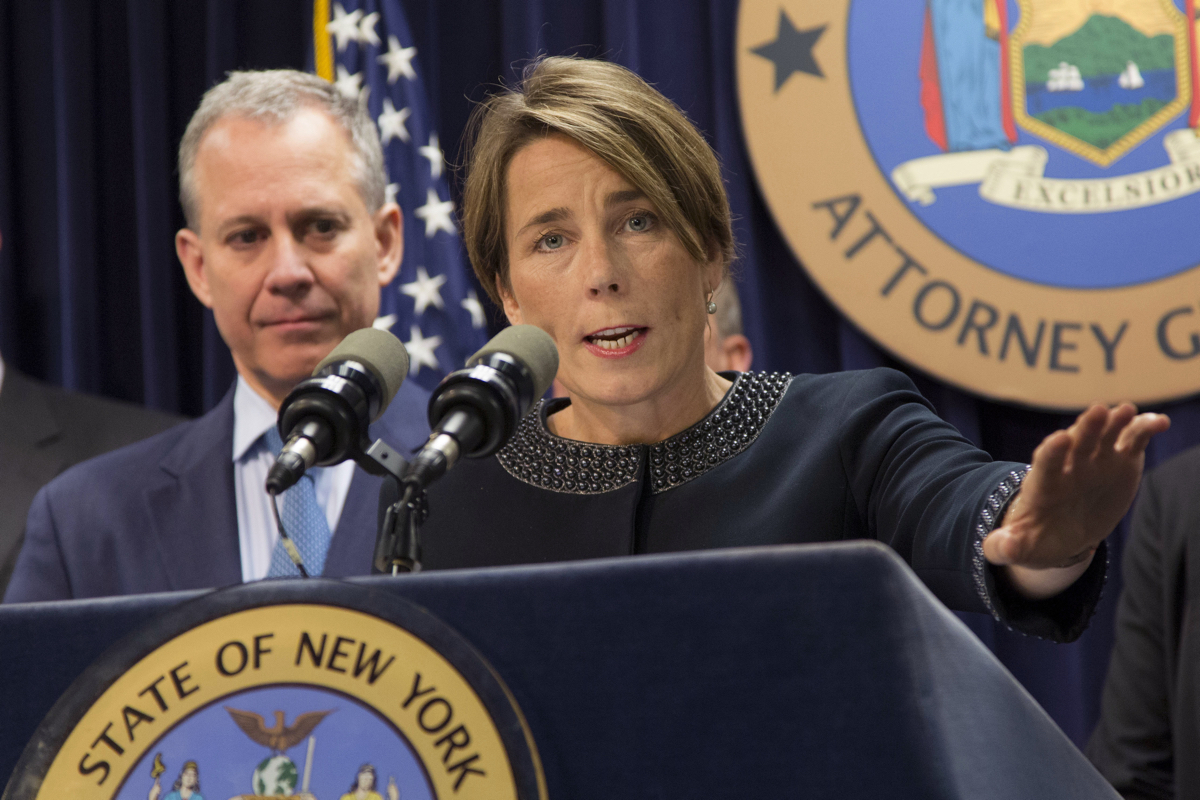Massachusetts Is Suing Over DACA, Maura Healey Says

Photo via AP
Once again, Massachusetts has by and large rejected President Trump’s latest sweeping decision targeting immigrants, this time the roughly 800,000 young people brought here as children and protected by the so-called DACA program. And for not the first time, we’re suing.
After state and local officials condemned the Trump administration’s decision to rescind the program, Attorney General Maura Healey says she’s taking the federal government to court. “We’ll be suing to defend DACA,” Healey tells the State House News Service, adding that she believes the decision is “illegal.”
The effort will be a collaboration with other states, she says, without specifying which, but saying those could include California, New York, New Mexico, and Washington.“We believe the Trump administration has violated the Constitution and federal law,” California Attorney General Xavier Becerra has said, without offering specifics on whether and when his state might sue.
It isn’t clear what the states’ arguments in court might be. DACA was implemented in 2012 by President Obama by executive action, without Congress, after lawmakers failed to pass a broader immigration bill that included DACA-like protections. So the Trump team believes it’s firmly within the president’s authority to end it on his own. What spurred the decision in the first place was the threat of a lawsuit from 10 states, whose attorneys general said they believed DACA was unconstitutional. A handful of lawsuits filed on behalf of DACA recipients, including a medical student in New York, have argued the decision is motivated by racial prejudice and violates the equal protection clause of the Constitution. Similar arguments, citing Trump’s tweets and statements about Muslim immigration, were used in challenging Trump’s travel ban.
Trump’s decision, announced by Attorney General Jeff Sessions Tuesday, would halt new applications for DACA protections—which apply to people brought illegally across the border as children before 2007—and would continue to process two-year renewals of those protections for six more months. The delay is intended to give Congress time to act, the White House says. Trump also said in a tweet that if Congress does not act, he “will revisit this issue!”

